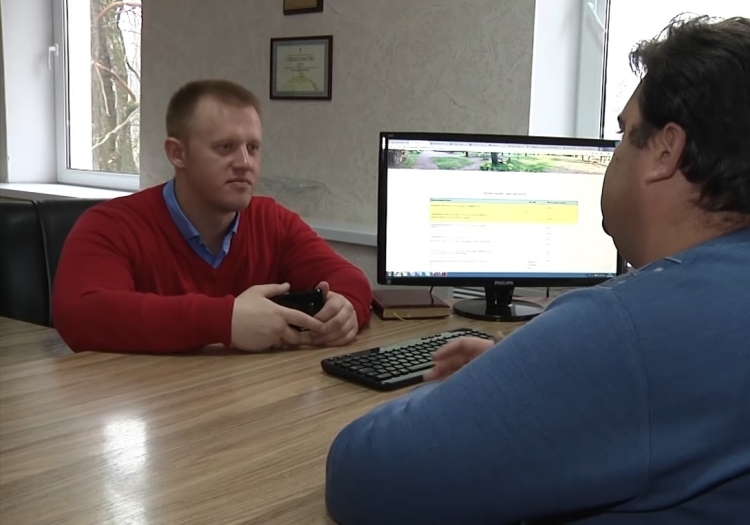Leaked data from the Russian Defense Ministry shook the story loose.
A team of investigators found that during the first 21 months of the invasion of Ukraine, nearly 1,000 Russian soldiers were treated at Belarusian hospitals, including war crime suspects. These “secret patients,” as they were known, directly tied Belarus to Moscow’s war effort.
“It painted a clear picture that Belarus was complicit despite [President Lukashenko’s] claims of neutrality,” said Stanislau Ivashkevich, the founder of the Belarusian Investigative Center (BIC), a member center of the Organized Crime and Corruption Reporting Project (OCCRP).

Ivashkevich, who led the overall coordination and production of this collaborative investigation, is the 2025 winner of ICFJ’s Hans Staiger Investigative Reporting Award – the second recipient so far. The Award supports investigative reporting by journalists who are part of OCCRP’s global network.
In addition to the team from BIC, whose journalists Yuliya Radionovich and Maksym Savchuk made significant contributions to the story, the project included journalists from Skhemy, an investigative news project run by RFE/RL’s Ukrainian Service, and the Ukrainian “hacktivist” group KibOrg. Due to security concerns, many contributing researchers worked under pseudonyms.
The investigative report was rich in details, publishing names, diagnoses, hospitalization dates, and in some cases, photographs of soldiers who received covert medical care. Some of the Russian wounded operated in Bucha and other areas where massacres and torture have been verified.
Patients included paratroopers involved in an assault on Ukraine’s Hostomel’s Antonov airfield, riot police linked to civilian executions, troops from elite Russian units, and soldiers suspected of firing on fleeing residents near Kyiv on the “Highway of Death.”
Medical staff were strongly “advised” not to talk about any of it, a former employee of a Belarus hospital told BIC: “Otherwise, you and your family could face serious consequences.”
The evidence collected from medical records, battlefield documents and civilian testimonies prove an important point, Ivashkevich said. He noted that through wide republishing and distribution, the story resonated beyond the region and confirmed that Belarus’ involvement in Russia’s war against Ukraine is not just a local issue.

By BIC’s count, the investigation has been republished 64 times across independent Belarusian, Ukrainian and Russian media outlets and cited by major international broadcasters, including Radio Free Europe and Deutsche Welle. There have been over million views via reprints and on their own platforms.
The key to success, said Ivashkevich, was “staying determined and understanding that when you’re dealing with a list of nearly a thousand names [of Russian soldiers], quick results are not something you can expect.”
Winning the Hans Staiger Award is “an honor,” said Ivashkevich. “The BIC team is also grateful for the [judging] committee’s attention to the topic of our investigation – war crimes committed in the course of the ongoing invasion of Ukraine.”
The Hans Staiger Award, which comes with a $5,000 prize, was established in honor of Staiger, a longtime reporter and editor for the BBC and a media development consultant with ICFJ for more than 12 years. As an ICFJ consultant, Staiger worked closely with OCCRP, a longtime ICFJ partner.
“This story and the work of Stanislau and his colleagues would have meant so much to Hans,” said his wife and colleague Vjollca Shtylla. “He had worked closely with outstanding Belarusian journalists like the BIC team who brave all odds to bring important stories to light.”
To support courageous reporting like Stanislau’s and to pay tribute to Hans’ memory, we invite you to make a contribution to this award. Thank you to everyone who has donated to make this award possible.
Note: Sherry Ricchiardi, the author of this article, was one of the judges for the Hans Staiger Award in 2025.
This article was edited on August 11, 2025, to include the names of two contributors to the investigation.